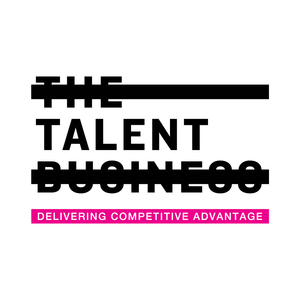
Are Creative Stars Leaving Adland to Future Proof Their Careers?

The future of business is creativity. And we’re not just talking about the obvious kinds of businesses here: production companies, ad agencies, design studios. We’re talking everything from finance to construction, tech to retail. It’s a message we’ve been hearing across the industry; recently the team at Lift London told us that helping businesses of all types tap into creativity is one of Microsoft’s key drivers. And of course there was the news last week that Accenture has bought Karmarama to bring a bit of creative zing to its growing suite of digital agencies – and suggesting that creative insight is just the thing that the consulting giant and its clients need to survive the current age of disruption.
What that means is that adland superstars are frequently courted by other industries – although nowhere is this phenomenon more rampant than creative technology brands.
“The spectacular growth of ‘creative tech’ brand owners across the US and globally has fuelled an exponential growth in the demand for business leaders and senior talent who understand the scalability of creativity, and how to foster and leverage creativity for commercial success,” says Gary Stolkin, Global Chairman and CEO of The Talent Business. “The primary source of this talent has been the communications agency space, but the battle for stars (and rising stars across all communications disciplines) has been something of a one-sided affair thus far, with leading creative tech brand owners offering agency stars the opportunity to experience an innovation – a content-driven parallel universe that’s a million miles away from the traditional advertising agency space.”
And where businesses are looking for creativity, they’re also looking for creative leaders. Gary has seen that battle for creative talent heat up over recent years.
“‘Creativity’ has never appeared higher up the attribute ranking for corporate leadership talent than it does today. It seemed novel (even back in 2010) when both IBM and EY released white papers heralding the age of the ‘creative executive’, but it has a whole new currency in a digital world thanks to the creative tech businesses it has spawned,” he says.
These businesses are not necessarily looking for the best creative craftsperson or practitioner, rather it’s about the ability to lead an organisation and nurture a creative culture. That requires a very particular set of skills and way of thinking – which is why The Talent Business is turning to neuroscience to track down those creative leaders who have the potential to transform a business.
“It’s increasingly an aptitude that brand owners want to acquire as they seek to develop cultures that more instinctively innovate and drive creativity for commercial gain. So much so that the global executive search firm I run is developing a new generation of competency-based tests that apply neuroscience to assess the cognitive potency of creative leaders. We see the potential to apply whole brain cognitive exercises.”
From the point of view of the creative directors who are leaving traditional agency life, it’s not that Google, Facebook and Apple are luring them away with the promise of status symbol job roles to pierce the hearts of their agency colleagues with the icy chill of FOMO. And what’s more, argues Gary, it’s not even about the money.
The key factor, he argues, is relevance. Relevance is something that the best creatives spend their working life trying to capture for their brand clients – so inevitably it’s something they also want to apply to their own career and personal brand.
“With a small number of exceptions, creative agencies are struggling to re-invent their business models in a faster-moving, more content-driven world and, to be blunt, agency stars don’t believe they’ll learn much about progressive marketing working with clients who expect agencies to spend most of their time developing and pre-testing TV scripts,” says Gary. “More often than not these agency stars join creative tech businesses for less money than they’re making in their agency job (although the stock-based incentive plans are usually better) because their primary driver isn’t money, it’s to future proof their career.”










